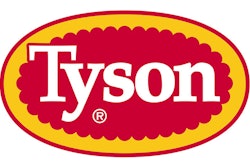For most food manufacturers, the rollout of the Food Safety Modernization Act (FSMA) doesn’t necessitate a big change to pest control procedures. Because having a pest-free environment is a prerequisite to food production and not a preventative control, a comprehensive integrated pest management (IPM) program should already cover everything FSMA requires. What will change as a result of the new regulations is the way the Food and Drug Administration (FDA) enforces food safety laws. FSMA lowers the threshold for conditions needed to trigger FDA intervention — such as administrative detention or the suspension of a facility’s license — from discovery of an infestation to the mere presence of risks that could lead to an infestation. The new regulations also require thorough documentation of the manufacturer’s pest control measures. While FSMA shouldn’t require major upgrades to facilities or procedures, it should trigger a few changes to food manufacturers’ mindset regarding pest control:
Think of Your Pest Control Vendor as a Trusted Partner
Because the FDA now has the authority to take action based on risk factors for pest problems, it is essential for facility managers to view their pest control vendor as a true partner in preventing infestations. A thorough pest prevention partner will be able to make recommendations to help avoid pest issues and the greater costs associated with remediating those issues after they happen. These recommendations may be wide-ranging, from cultural changes such as keeping exterior doors closed to physical changes such as repairing damage to walls to process changes — including such practices as increasing the frequency of a sanitation standard operating procedure. If a facility already has a strong IPM program in place, its pest control vendor should already be putting these recommendations in writing. It is more important now for plant managers to pay serious attention to the recommendations, take action to address any noted issues or concerns and document those actions to close the loop on risk factors for pest infestation. This closed-loop approach is what regulators are looking for when they assess a facility.
Proactive Mindset
This trusted partnership should trigger a shift in the way food manufacturers think about approaching pest risks in their facilities. Rather than looking for signs that a problem exists and then reactively taking action to treat it, facility managers should be thinking proactively about addressing the risk factors identified by their pest control specialist to eliminate risks before they become a problem. Eliminating those risks before a pest problem starts will reduce the need to deploy pesticides inside the facility. Food manufacturers and the general public understand and accept the proactive approach for food safety as it relates to microscopic dangers such as Salmonella and E. coli, but having a proactive mindset as it relates to arthropod pests is something that FSMA brings to the forefront. A knowledgeable pest prevention provider will welcome this approach with open arms.
A Full Team Effort
With the increased importance of preventing risk factors that could lead to pest introductions and infestations, vigilance is now more important than ever. Every employee in the facility should understand the dangers of pest activity in their facility, where the risks exist in their work area and what steps to take if they notice pest activity or conditions that could lead to an infestation, including:
- Standing water
- Water/moisture in places it shouldn’t be
- Gaps around pipes and other fittings that lead to the outside
- Damage to walls and baseboards
- Improperly maintained drains
- Signs pests may be present in incoming goods as they’re received, such as droppings, damage to packaging or product that has obviously been fed upon
Any stoppage in a food manufacturer’s operations can greatly impact the bottom line. An FDA shutdown triggered by a pest infraction could be lengthy, depending on the corrective actions needed, and could cost millions of dollars in lost revenue — and that doesn’t include the untold cost of negative publicity, media attention and brand damage that could occur as part of a shutdown. However, if facility managers pay close attention to concerns raised by their pest specialist, think proactively about addressing those concerns and get all employees involved in monitoring for and reporting potential issues, remaining in compliance with the recent FSMA regulations will be a smoother, easier, more sustainable and more cost-effective process.
Judy Black is a Board Certified Entomologist (BCE) and Vice President of Technical Services at Rentokil Steritech.























